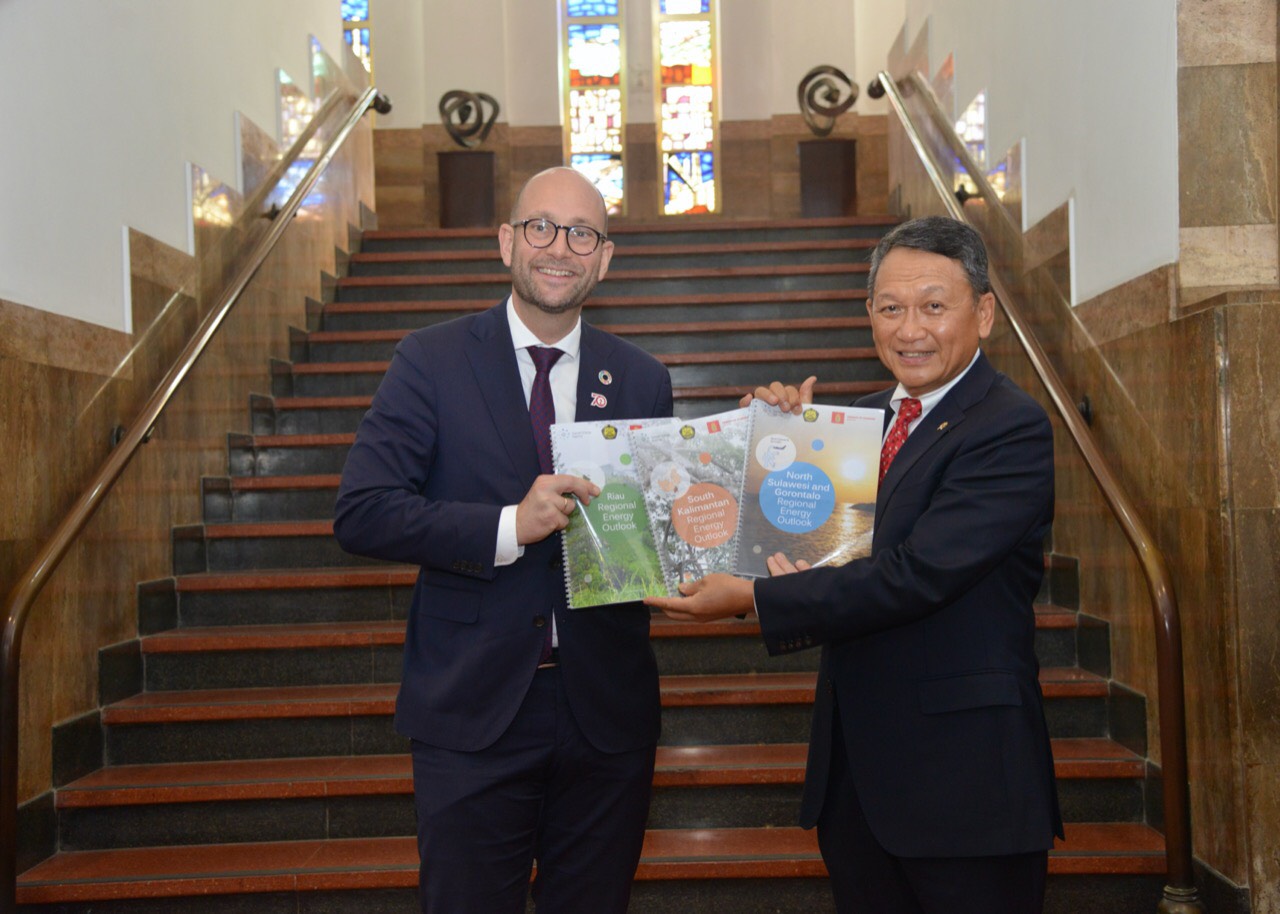Danish and Indonesian Ministers conclude that Indonesian regions can save both energy and money in the future

Danish-Indonesian energy cooperation ascertains how the provinces of North Sulawesi, Gorontalo, South Kalimantan and Riau can save up to 11.5 million tons CO2 by 2030. That is 75% of the annual CO2 emissions from the Danish transport sector in 2018.
Today the Danish Minister for Development Cooperation, Mr. Rasmus Prehn, presented three Energy Outlook reports covering the Indonesian regions of North Sulawesi, Gorontalo, South Kalimantan and Riau to the Indonesian Minister of Energy, Mr. Arifin Tasrif. The conclusion is clear: North Sulawesi, Gorontalo, South Kalimantan and Riau can save both energy and money. Each province has a large potential for renewable energy, which provides a cost-efficient solution for the development of a green energy system. Combined, they could reduce as much as 11.5 million tons CO2 in 2030.
Coal has historically been the main energy source in Indonesia but the Danish Energy Agency is working together with the four Indonesian provinces in their efforts to use natural resources and go green.
“Denmark cooperates with Indonesia to support the Island nation’s efforts to reach its NDC and live up to the Paris Agreement as well the UN Sustainable Development Goals on energy and climate. The production of the three Energy Outlook Reports is an important step in that process as it provides concrete solutions, that each province can in fact implement. Regional projects could pave the way for the realization of Indonesia’s vast potential for renewable energy,” says Martin Hansen, Deputy Director of the Danish Energy Agency.
From screening of provinces to renewable energy projects
The three Energy Outlook Reports have been produced in collaboration with the National Energy Council in Indonesia, the Provincial Governments, PLN, Ea Energy Analyses, and the Danish Embassy in Jakarta. It was funded by the umbrella initiative, Energy Transition Partnership.
If all parties agree to continue the cooperation, next phase will focus on the development of pre-feasibility studies. These will provide comprehensive knowledge of the potential for renewable energy and project recommendations on how the development of renewable energy can be carried out.
Strategic sector cooperation between Denmark and Indonesia
With almost 270 million inhabitants spread across some 6,000 inhabited islands, Indonesia is the world’s fourth most populous country. It is also representing approximately 5% of the global CO2 emissions - emitting almost 40 times as much CO2 than Denmark. While the regional cooperation enables individual provinces to go green and take the first steps towards energy transitions, the Danish Energy Agency also collaborates with national energy authorities.
On national level, joint data crunching has demonstrated that by choosing a green path, Indonesia can cost-effectively reduce its level of CO2 emissions with 400 million tons in 2030. That is 11 times the total emissions from Danish energy consumption in 2018.
These activities are a part of the strategic sector cooperation between Denmark and Indonesia. It is structured as a government-to-government cooperation and supports the Danish Development- and Foreign policy as well as the Strategy for Economic Diplomacy. The initiative is carried out in close collaboration between Danish Authorities and the Danish Embassy and the aim is to contribute to inclusive, sustainable growth and development by supporting conducive framework conditions for the fulfilment of the Sustainable Development Goals (SDGs).
About
- The Indonesian-Danish government-to-government cooperation is run by the Danish Energy Agency and is financed through the Danish Ministry of Foreign Affairs and the Energy Transition Partnership (ETP).
- The current cooperation was established in 2016 and is focusing on supporting Indonesia in their fulfillment of the Paris Agreement and the UN Sustainable Development Goals on energy and climate
- Denmark has government-to-government cooperation’s across 15 countries. These countries are responsible for more than 60 % of global CO2 emissions. By building capacity and knowledge in partner countries, the political decision makers are given choice awareness to make sustainable and cost-effective decisions with focus on the global green transition.
For more information
Mr. Anders Kruse, Advisor, Danish Energy Agency, akr@ens.dk, +4533926643